Notebook
-
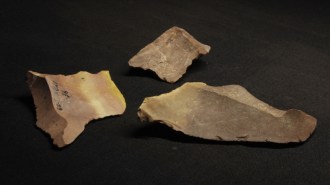 Archaeology
ArchaeologyIndigenous input revealed early hints of fiber making in the tropics
To decipher marks on nearly 40,000-year-old stone tools and figure out what they were used for, researchers turned to the Philippines’ Pala’wan people.
-
 Astronomy
Astronomy50 years ago, a search for proof that the Maya tracked comets came up short
The mystery of whether the ancient civilization tracked comets endures, but recent evidence hints the Maya tracked related meteor showers.
-
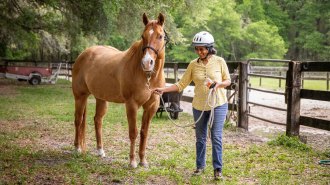 Tech
TechHow understanding horses could inspire more trustworthy robots
Computer scientist Eakta Jain pioneered the study of how human-horse interactions could help improve robot design and shape human-robot interactions.
-
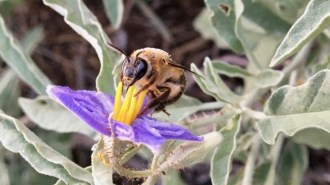 Life
Life‘Polyester bees’ brew beer-scented baby food in plastic cribs
Ptiloglossa bees’ baby food gets its boozy fragrance from fermentation by mysteriously selected microbes.
By Susan Milius -
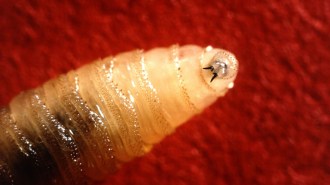 Life
Life50 years ago, flesh-eating screwworms pushed scientists to mass produce flies
"Fly factories” dreamed up in the early 1970s have helped North and Central America keep screwworms in check for decades.
By Nikk Ogasa -
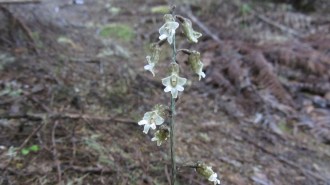 Plants
PlantsA hunt for fungi might bring this orchid back from the brink
Identifying the fungi that feeds the Cooper’s black orchid in the lab may allow researchers to bank seeds and possibly regrow the species in the wild.
-
 Science & Society
Science & SocietyDeliberate ignorance is useful in certain circumstances, researchers say
The former East German secret police, the Stasi, spied on people for years. But when given access to the Stasi files, most people didn’t want to read them, researchers found.
By Sujata Gupta -
 Climate
ClimateThere’s good and bad news with California’s electric vehicle program
The electric vehicle program is reducing carbon dioxide emissions but also shifting the pollution burden to the state’s most disadvantaged communities.
-
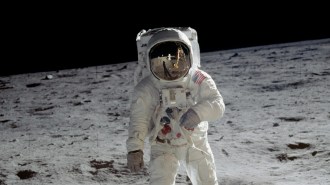 Space
Space50 years ago, cosmic rays may have caused Apollo astronauts to see lights
Apollo astronauts reported seeing flashes of light where there were none. Fifty years later, the flashes still mess with modern astronauts’ vision.
-
 Health & Medicine
Health & Medicine50 years ago, enzyme injections showed promise for treating a rare disease
Enzyme replacement can offer relief to people with rare diseases. Now, scientists have found a way to treat one disease before a person is even born.
-
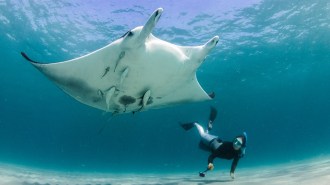 Animals
AnimalsThis marine biologist is on a mission to save endangered rays
Jessica Pate and the Florida Manta Project confirm that endangered mantas are mating and sicklefin devils are migrating along the East Coast.
-
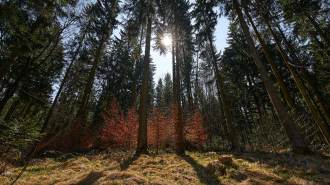 Plants
PlantsUltrasound reveals trees’ drought-survival secrets
Scientists used ultrasound sensors and electrical probes to reveal how drought affects the tissues of living trees.